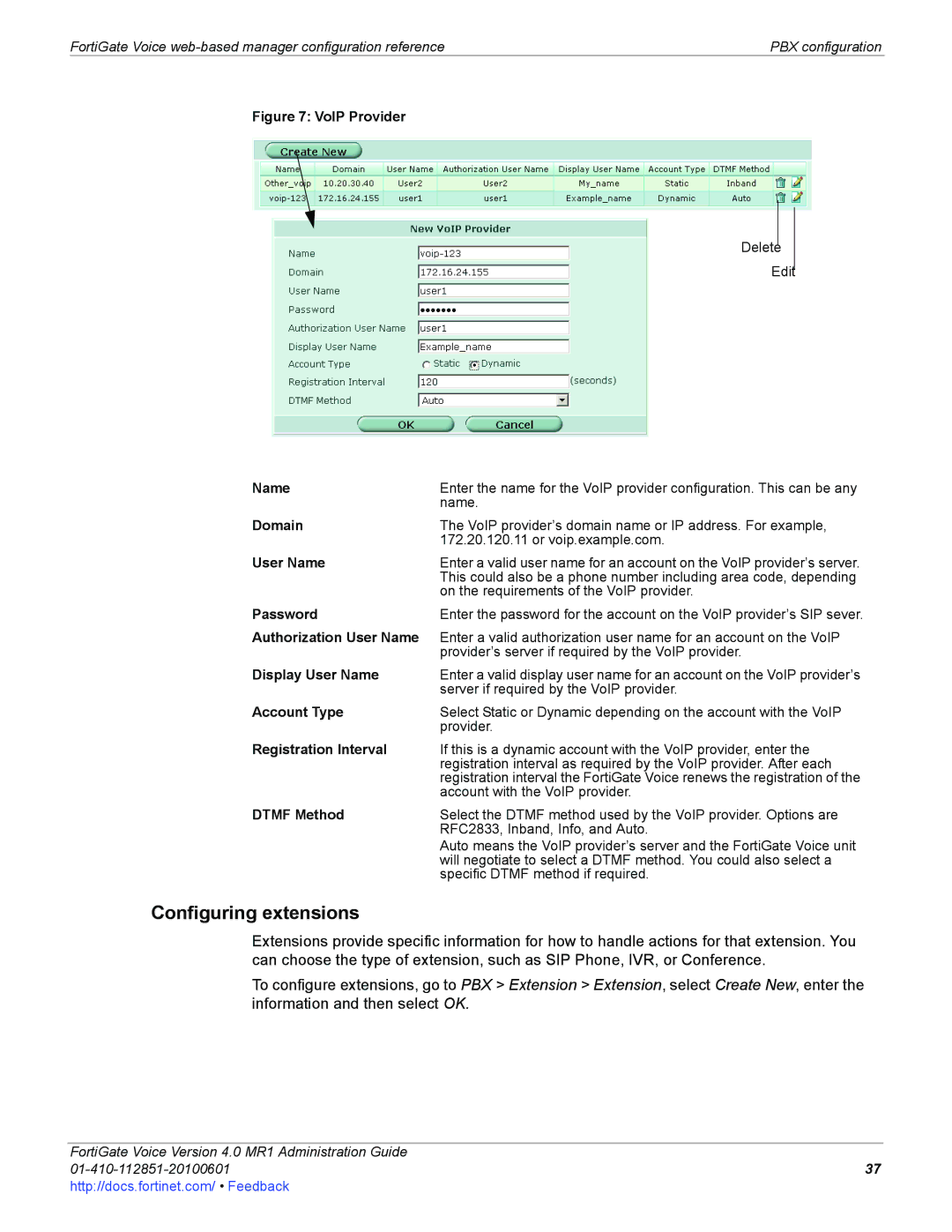
FortiGate Voice | PBX configuration |
Figure 7: VoIP Provider
Delete
Edit
Name | Enter the name for the VoIP provider configuration. This can be any |
| name. |
Domain | The VoIP provider’s domain name or IP address. For example, |
| 172.20.120.11 or voip.example.com. |
User Name | Enter a valid user name for an account on the VoIP provider’s server. |
| This could also be a phone number including area code, depending |
| on the requirements of the VoIP provider. |
Password | Enter the password for the account on the VoIP provider’s SIP sever. |
Authorization User Name | Enter a valid authorization user name for an account on the VoIP |
| provider’s server if required by the VoIP provider. |
Display User Name | Enter a valid display user name for an account on the VoIP provider’s |
| server if required by the VoIP provider. |
Account Type | Select Static or Dynamic depending on the account with the VoIP |
| provider. |
Registration Interval | If this is a dynamic account with the VoIP provider, enter the |
| registration interval as required by the VoIP provider. After each |
| registration interval the FortiGate Voice renews the registration of the |
| account with the VoIP provider. |
DTMF Method | Select the DTMF method used by the VoIP provider. Options are |
| RFC2833, Inband, Info, and Auto. |
| Auto means the VoIP provider’s server and the FortiGate Voice unit |
| will negotiate to select a DTMF method. You could also select a |
| specific DTMF method if required. |
Configuring extensions
Extensions provide specific information for how to handle actions for that extension. You can choose the type of extension, such as SIP Phone, IVR, or Conference.
To configure extensions, go to PBX > Extension > Extension, select Create New, enter the information and then select OK.
FortiGate Voice Version 4.0 MR1 Administration Guide
